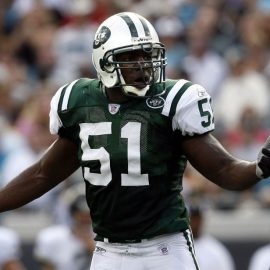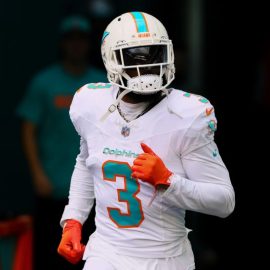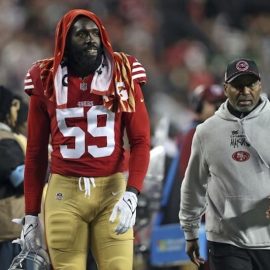As Jose Mourinho prepares for his second Champions League final, memories of his first are reignited. One moment in particular sticks in the mind. As his Porto side jumped up and down on the podium celebrating their improbable success, Mourinho dramatically walked off. A man who had bred an incredible team spirit betraying them at the last.
In those surreal few seconds the world saw an egomaniac. He had to make himself appear the orchestrator of events. He could not celebrate with his players because they were actors in his game.
Anyone who has followed Mourinho is aware of his provocative and often bizarre statements and behaviour. In press conferences and interviews he comes across less of a football coach and more of an actor. At first this seems strange, but upon awareness of his background you realise that his whole career is the creation of a fantastical mind.
He has risen to prominence from the most unorthodox of backgrounds, starting as a failed player and then becoming a sports coach in a school, before working his way up the professional coaching ladder. He knew he would need to be a maverick with an obsessive work ethic to prevent himself from being a foreigner to sporting history.
The truth is that he is a sports teacher with ideas above his station. He should have no right to tell the best footballers in the world how to do their job. But through sheer force of personality he has managed to do it. Perhaps then, all the bombast and scandal he creates is a smokescreen to hide little more than a cocksure sports teacher. His con depends on it.
Realising this, his bizarre acts take on a new light. Take his press conference before a Chelsea-Barcelona game in 2005, ‘Do you want to know my team? I can say my team and Barcelona’s team.’ He then goaded the press as he reeled off his Chelsea starting XI before doing the same for Frank Rijkaard’s side, and then named the referee just for the sake of it. It was a psychological attack on Barcelona but it was also an act suggestive of a man who fears he is out of his depth. He could never have the cool and calm demeanor of a man like Rijkaard who played at the highest level and sits comfortably with the footballing elite.
His modest background also explains his constant need for conflict. Rising from underdog status can only be achieved with a fierce desire to win. His war-like mentality requires an enemy to be maintained. When he started out the enemy was presumably the whole world who would laugh if told his dreams. Now he must manufacture one. A recent example being his bizarre and cruel treatment of Claudio Ranieri while managing Inter. He has created a whole soap opera between the two, which included attacking Ranieri for his age, “ [Ranieri] has the mentality of someone who doesn’t need to win and at nearly 70 years old he has won a Supercoppa and another small cup. He’s too old to change his mindset.”
He even urged the press to get involved in their personal phone calls, “He called me this morning, I didn’t answer”he said. “I authorise all of you in the media to ask him what he wanted from me.” And just like that, he has created a nemesis.
A man of Mourinho’s ilk will always have a love/hate relationship with success. He was starved of it most of his life, and deep down probably fears being sent back to a high school in Portugal. At Chelsea, he may have woken up in the morning a multi-millionaire and felt deadened by a prospective away fixture to Bolton. He worries his fire is dimming. People will talk. The con might be up. He must again stack the odds against himself. This logic helps explain the more extreme comments he has made such as his infamous ‘voyeur’ attack on Arsene Wenger. He creates a firestorm of criticism, which will provoke higher performance from himself.
Being an underdog seems to be a quality of many successful managers. When Alex Ferguson took his first management job at East Stirlingshire, a part -time role in charge of a side who had no goalkeepers upon his arrival, there was a vast autobahn of nothing lying ahead of him. He should have felt his lofty ambitions drowned out. Only a mixture of violent desire and prophetic vision could have made him believe those early days were the start of a great legacy. Perhaps this is why he feels an affinity with a fellow firebrand like Mourinho.
He is more fantastical than Ferguson though. What we read and hear of Mourinho is not a man at all. It is a fictional character. And if he lifts the Champions League trophy again on Saturday night perhaps the inner sports teacher will have a wry smile at the absurd success of his creation.
Add Sportslens to your Google News Feed!






